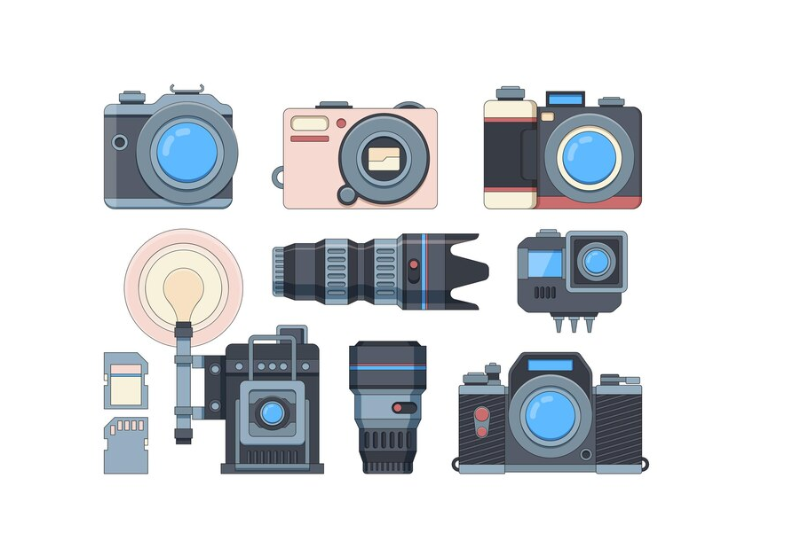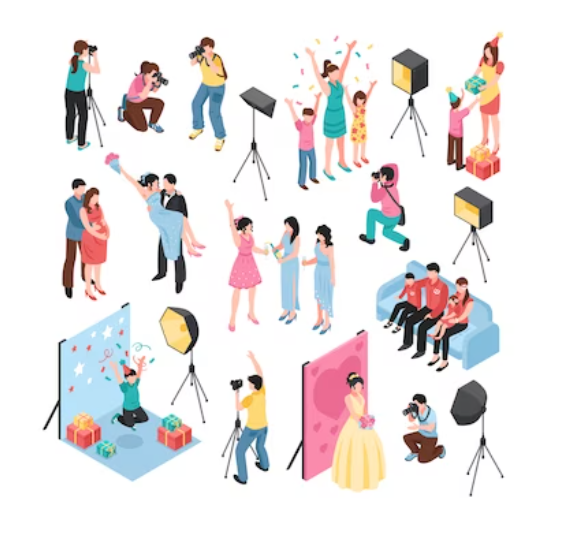Which is the best camera for a photographer?

As a photographer, the most important tool in your arsenal is undoubtedly your camera. But with so many different types and models available on the market, it can be overwhelming to decide which one is the best for you. In this blog, we will explore some of the key factors to consider when choosing a camera and provide some recommendations for the best cameras for photographers.
1. Budget
The first thing to consider when choosing a camera is your budget. Cameras can range from a few hundred dollars to several thousand, and the price often reflects the features and quality of the camera. It’s important to set a budget that you’re comfortable with and choose a camera that fits within that budget.
2. Type of photography
The type of photography you plan to pursue will also play a significant role in your choice of camera. For example, if you plan to shoot landscapes or wildlife, you may want a camera with a high-resolution sensor and a long zoom lens. If you plan to shoot portraits, you may want a camera with a fast lens and good low-light performance.
3. Sensor size
The size of the camera’s sensor is another important factor to consider. A larger sensor generally means better image quality, especially in low light. Full-frame cameras have the largest sensors and are preferred by professional photographers, but they can also be expensive. Crop sensor cameras are more affordable and still offer good image quality, making them a popular choice for many photographers.
4. Lens system
The lens system is another crucial factor to consider when choosing a camera. Different cameras use different lens mounts, and once you invest in a system, it can be costly to switch. It’s important to consider the availability and cost of lenses when choosing a camera.
5. Brand reputation
The reputation of the camera brand is also important to consider. Brands such as Canon, Nikon, and Sony are known for producing high-quality cameras and lenses and have a strong reputation in the photography community. Choosing a camera from a reputable brand can give you peace of mind that you’re investing in a quality product.
6. User interface
The user interface of the camera is also important to consider. Some cameras have a more intuitive interface than others, and it’s important to choose a camera that you feel comfortable using. If possible, it’s a good idea to try out different cameras before making a purchase to get a sense of the interface and how it works.


The user interface of the camera is also important to consider. Some cameras have a more intuitive interface than others, and it’s important to choose a camera that you feel comfortable using. If possible, it’s a good idea to try out different cameras before making a purchase to get a sense of the interface and how it works.
Based on these factors, here are some recommendations for the best cameras for photographers:
1. Canon EOS R6: This mirrorless camera offers excellent image quality, fast autofocus, and good low-light performance. It’s also relatively affordable for a full-frame camera.
2. Nikon Z7 II: This full-frame mirrorless camera offers excellent image quality and a robust feature set, including 5-axis in-body stabilization and dual memory card slots.
3. Sony A7 III: This full-frame mirrorless camera offers excellent image quality, fast autofocus, and good low-light performance. It’s also relatively affordable for a full-frame camera.
4. Fujifilm X-T4: This APS-C mirrorless camera offers excellent image quality and a compact, lightweight design. It also has a good selection of lenses available.
5. Olympus OM-D E-M1 Mark III: This Micro Four Thirds camera offers excellent image quality and a rugged, weather-sealed design. It also has excellent in-body image stabilization.
In conclusion, choosing the best camera for a photographer depends on a range of factors, including budget, type of photography, sensor size, lens system, brand reputation, and user interface. It’s important to do your research and consider these factors carefully before making a purchase. By choosing a camera that fits your needs and budget, you can take your photography to the next level and create stunning images that capture the essence of your creativity.
The best way to practice photography as a beginner
If you’re a beginner in photography, the best way to improve your skills and gain experience is through consistent practice. However, it can be overwhelming to know where to start and what to focus on. Here are some tips on the best way to practice photography as a beginner.
1. Start with the basics
Before jumping into more advanced techniques and settings, it’s important to have a strong foundation in the basics of photography. This includes understanding concepts such as exposure, shutter speed, aperture, and ISO. Take some time to read up on these topics and practice using them in your photography.
2. Shoot regularly
The more you shoot, the more you’ll improve. Make it a habit to take your camera with you wherever you go and practice taking photos in different settings and lighting conditions. This will help you gain experience and learn how to adjust your camera settings on the fly.
3. Experiment with different settings
Don’t be afraid to experiment with different camera settings and techniques. Try shooting in manual mode and adjusting your shutter speed, aperture, and ISO to achieve different effects. Take advantage of your camera’s features, such as autofocus and image stabilization, to improve your shots.
4. Study other photographers
Take time to study the work of other photographers, both famous and amateur. Analyze their compositions, lighting, and editing techniques to gain inspiration and ideas for your own photography. Joining a photography group or forum can also provide valuable feedback and support from other photographers.
5. Practice editing
Post-processing is an important part of photography, and learning how to edit your photos can greatly enhance their quality. Experiment with different editing software, such as Adobe Photoshop or Lightroom, and practice editing your photos to achieve the desired effect.
6. Focus on composition
Composition is key to creating strong and visually appealing photos. Practice composing your shots by paying attention to elements such as symmetry, leading lines, and the rule of thirds. Take time to analyze your shots and make adjustments to improve the composition.
Find your niche As you gain experience and practice, you’ll start to discover what type of photography you enjoy and excel at. Whether it’s landscape photography, portrait photography, or something else, finding your niche can help you focus your efforts and improve your skills in a specific area.
In conclusion, the best way to practice photography as a beginner is to start with the basics, shoot regularly, experiment with different settings, study other photographers, practice editing, focus on composition, and find your niche. Photography is a skill that requires consistent practice and dedication, but with time and effort, you can improve your skills and create stunning photos.
